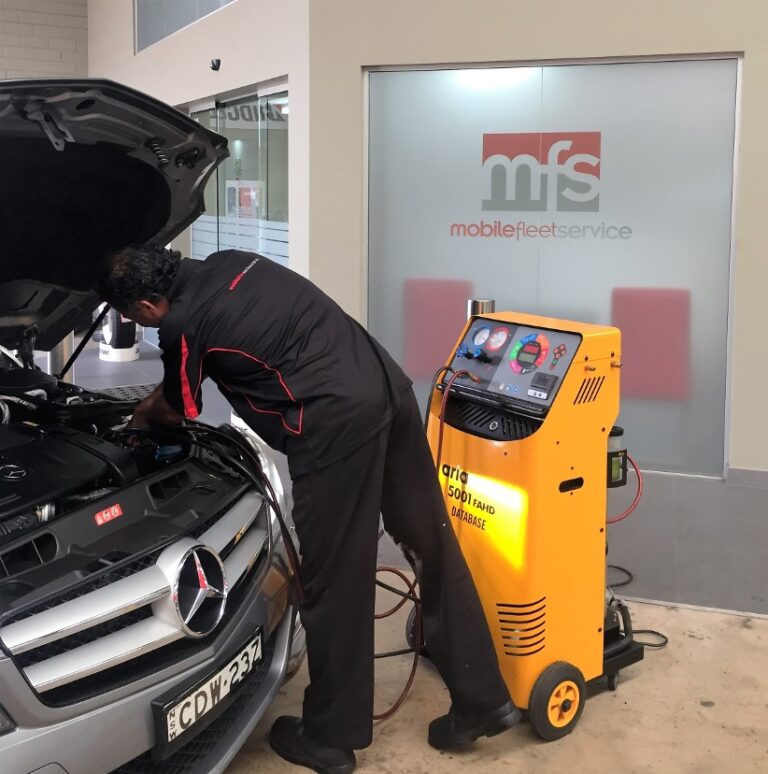– By Gerard Norsa –
It is a common misconception in the automotive industry that, because of modern engine management and diagnostic technology built into new cars, only authorised dealers and repairers are capable of completing servicing and warranty repairs on vehicles.
Nothing could be further from the truth. There are anti-competitive laws, international diagnostic standards, industry agreements and codes of conduct in place to ensure fleet managers have rights and abilities to choose exactly where they want their vehicles serviced and repaired including the latest models.
Under the Competition and Consumer Act (2010), it is a statutory requirement that vendors can’t attach conditions to a sale that restricts the buyer’s freedom of choice to deal with whoever they choose in regards to servicing and warranty.
According to Martin Cuthbert, Managing Director of vehicle maintenance solutions company, Mobile Fleet Service, there are very few limitations to the scope of repair capabilities that an independent service provider can deliver because manufacturers operate to international standards.
“So long as the repairer continues to invest in the latest diagnostic equipment, there is no reason why independents can’t undertake fleet servicing as well as, or even better than an authorised dealer or service centre,” Cuthbert said. “All late model vehicles operate on an OB11 standardised diagnostic systems platform, which requires an OB11 scan tool to read the software.
“These scanning tools are available from manufacturers as well as aftermarket industry suppliers. So long as you invest in this equipment, you have the capacity to properly maintain any vehicle and there are many quality and reasonably affordable equipment options available.”
Historically, manufacturers and their dealer networks in Australia have been protective of their proprietary servicing IP but under pressure from state and federal consumer watchdogs an agreement was reached in late 2014 for the industry to share service and repair information.
Though the Heads of Agreement is of a non-binding, self-regulatory nature it was endorsed by Government and signed by peak bodies that cover just about every vertical within the diverse local automotive industry.
The Australian Motor Industry Federation (AMIF), the Federal Chamber of Automotive Industries (FCAI); Australian Automobile Association (AAA); Australian Automotive Aftermarket Association (AAAA) and the Australian Automotive Dealer Association (AADA) are all signatories to the agreement.
Championing both industry and consumer interests, the agreement will help to ensure consumers and fleet managers are provided with the right information to make informed decisions when about the repair and servicing of vehicles including consumer access to their repairer of choice at a fair and reasonable cost.
Accompanying the Heads of Agreement is an industry-wide Code of Conduct that addresses six core issues:
- Sharing service and repair data;
- Paying a fair price for that data and information;
- An equitable complaints process;
- Transparency in vehicle servicing and warranties;
- Transparency in the sourcing of service and repair parts, and;
- An ongoing training program.
Mobile Fleet Service’s Cuthbert said that while manufacturers do have their own proprietary diagnostic equipment, third party suppliers are also servicing this market well.
“Generally speaking, after-market diagnostic equipment meets or exceeds the standards of the equipment used by the dealer networks, so in reality there is usually no need for access to dealer scan tools,” Cuthbert said. “In most cases the manufacturers and dealers are also happy to share their knowledge on recurring incidents, problems, root causes and solutions to issues that arise in particular makes and models.
“We purchase a significant amount of OEM parts through the individual dealer networks, so we have developed close working relationships over the years and are able to source information and assistance with our client’s vehicles when required.”
However, Cuthbert said that Australia is still a little behind the rest of the world when it comes to consumer protection in this area.
“Most other developed nations have very strict anti-competitive laws in place regarding information sharing by vehicle manufacturers,” he said. “In Australia, we have only recently adopted an industry-driven, self-regulated approach.”







